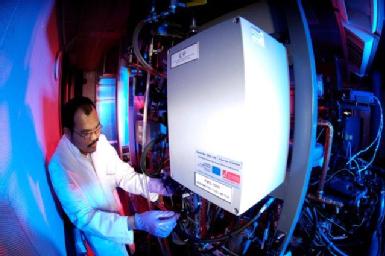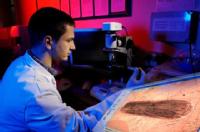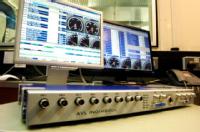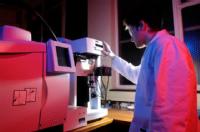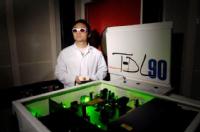Future engines and fuels
Highly Dynamic Engine Combustion and Fuel Laboratory for Clean Efficient Combustion of Alternative Fuels in Engines
A state-of-the-art laboratory in the University of Birmingham, funded by Advantage West Midlands (AWM) and the European Regional Development Fund (ERDF) as part of the Birmingham Science City initiative, is being installed to expand the existing facilities to investigate the highly dynamic aspects of the combustion of alternative fuels. The new laboratory facilities will be used to advance the understanding of the dynamics and control of new technologies for combusting “difficult” biofuels in engines. Understanding fuel properties is critical to understanding combustion chemistry and fuel handling physics. The design of this facility therefore integrates a cold-start dynamic engine combustion test chamber with a sophisticated fuel development laboratory for the testing of both powertrains and fuels. More specifically these research facilities encompass: Cold start highly dynamic transients engine combustion test chamber Business/industry contact: Dr Mike Ahearne +44 (0) 24 7657 5484 or +44 (0) 7824 541173; m.ahearne@warwick.ac.uk Visit the University of Birmingham's Future Power Systtems Research Group website |
This facility can test large passenger vehicle engines and medium size off-road engines in fast-changing and extreme climatic conditions, including cold starts. The test chamber incorporates: acoustic enclosures with air conditioning; large capacity electricity supply and soak facility; chilling facilities for cold starts from -20 degC; combustion air conditioning unit with combustion air delivered from -20 degC; fast transients engine dynamometer with millisecond controls, fuel and lubricant conditioning to -20degC; and state-of-the art combustion and emissions monitoring equipment including emissions measuring in transients and comprehensive particulate emissions capacity.
Fuel, flows and combustion development laboratory
The fuel development laboratory houses sophisticated instrumentation which can be used to investigate fuel spray characteristics and engine flow patterns and to carry out combustion and exhaust gas diagnostics. The instrumentation can identify and measure the composition of exhaust gases including particulate emissions, individual hydrocarbons and nitrogen oxides in transient and static tests. The equipment is also capable of characterizing and optimizing new fuels, including bio-derived fuels. The laboratory houses ventilated environment as well as modern equipment for fuel development including chemical and physical analysis.
These laboratory facilities coupled with the expertise of world-renowned academics are available for development of:
(i) New combustion technologies such as multi-fuel homogeneous charge compression ignition systems and the utilization of alternative fuels including fuel mixtures e.g. flexi-fuel biodiesel;
(ii) Control strategies and systems to operate over diverse climatic conditions including start-up in extreme cold conditions, total vehicle energy management involving energy recovery and auxiliary issues such as auxiliary power, air conditioning etc.
(iii) Characterization and combustion optimization including emission studies of new fuels, particularly new sustainable bio-derived fuels such as DMF, synthetic 2nd generation bio-derived FT fuels, alcohols, hydrogen (externally- and on-board-produced), etc.;
The Future Power Systems Group (FPS) led by Prof. Miroslaw Wyszynski, has world-leading expertise in applications of on-board fuel reforming to produce hydrogen for enhancing fuel combustion, development of homogeneous charge compression ignition technology and modelling methodologies, and more recently development of engines combusting fuel mixtures (diesel-gasoline and diesel-biofuel). Work is currently commencing on flexi-diesel engines for mixtures of diesel with both first and second generation biofuels. The group also includes: Prof. Hongming Xu, Professor of Energy & Automotive Engineering, an expert in optical diagnostics of flow and combustion as well as experimental design methodologies; Dr. Athanasios Tsolakis, a Lecturer in Automotive Engineering whose research interests include fuel reforming for pre-treatment, combustion and diesel emissions control for alternative fuels; and Dr. Karl Dearn, a Lecturer in Mechanical Engineering with research interests that include geared transmissions, tribology and future powertrains.


These facilities are based at the University of Birmingham.
Download leaflet with facilities' details:
SCRA Future Engines and Fuels Overview![]()
SCRA Fuel Pre-treatment and Exhaust After-treatment![]()
SCRA Highly Transient Cold Climate Engine/Powertain Testing Rig![]()
For more information contact facility manager Jakub Piaszyk:
T: +44 (0) 121 414 4148
Email: j.piaszyk@bham.ac.uk
